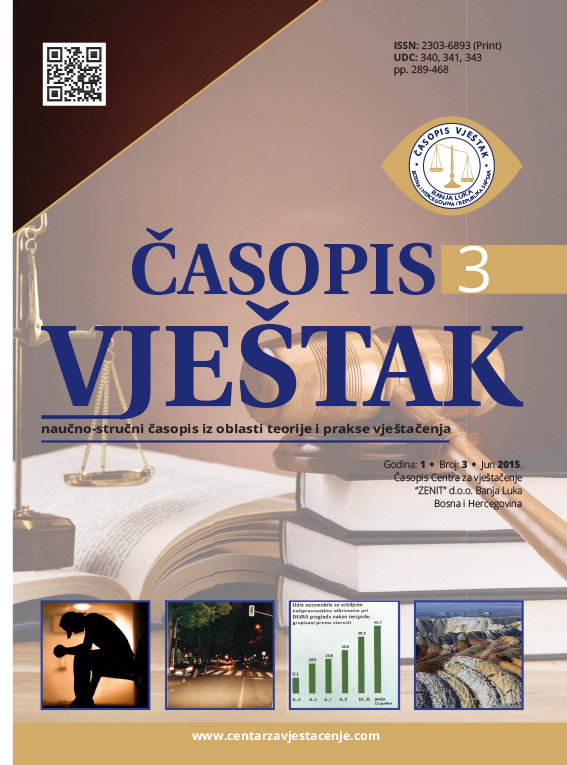Mobbing: Discrimination or Something Else?
Abstract
The dignity of employees is one of the most important moral and legally protected categories. His endangerment
presents blatantly violation of basic human rights and freedoms. Mobbing, as a form of psychological abuse in the workplace
and it is one of the most common forms of threats to the dignity of employees. Looking at Bosnia and Herzegovina’s antidiscrimination
legislation and standards in the field of general labor law in Bosnia and Herzegovina, this deviant social
phenomenon is prohibited by the Law on Prohibition of Discrimination in Bosnia and Herzegovina and the Labor law of
the Republic of Srpska, while the labor legislation in Federation of Bosnia and Herzegovina and Brdsko District of Bosnia
and Herzegovina contains no provisions on the prohibition of mobbing.
Although the Law on Prohibition of Discrimination in Bosnia and Herzegovina, and in particular parallel legal provisions,
mobbing is defined as a form of discrimination, phenomenological and theoretical legal analysis of this phenomenon can
be concluded that mobbing in many ways represents a specific form of threats to the dignity of employees. Therefore, the
question as to whether mobbing could be considered as a form of discrimination or this phenomenon demands a very
special legal theory, and therefore normative treatment? This paper will attempt to provide an answer to the question,
just because of the way the definition and qualification of mobbing, and certainly the way of normative regulation of its
prohibitions, largely depends on the effectiveness of psychological and physical protection of the integrity of employees
and their fundamental human rights and freedoms, as well as dynamics development of case law in this area.
